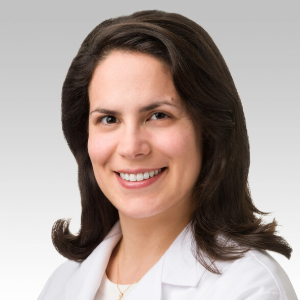
December 2024 Newsletter

December 2024 Newsletter

Faculty Profile
Luisa Morales-Nebreda, MD, ’17 GME, is an assistant professor of Medicine in the Division of Pulmonary and Critical Care. As physician-scientist, her laboratory employs advanced technologies and techniques to identify novel intercellular signaling pathways between resident immune cell subsets and the injured alveolar epithelial-endothelial barrier that promote tissue repair throughout the lifespan. Morales-Nebreda is also a member of the Center for Human Biology.
What are your research interests?
Broadly, my research program focuses on determinants of recovery from pneumonia. In the context of viral-induced lung injury, my laboratory aims to identify novel intercellular signaling pathways between resident immune cell subsets and the injured alveolar epithelial-endothelial barrier that promote tissue repair across the lifespan. As part of this work, we aim to unravel the complex molecular circuits governing the spatiotemporal phenotype and function of cells during the development of and recovery from acute lung injury. To address these critical gaps in knowledge, we employ state-of-the-art technologies, including single-cell RNA sequencing, single-cell TCR sequencing and spatially resolved transcriptomics. We apply these advanced techniques to our innovative murine models of lung injury and human samples to causally link how perturbation-based, molecular-level information impacts high-order disease phenotypes during pulmonary inflammatory processes.
Moving forward, my group aims to deepen our understanding of the cellular and molecular mechanisms that dictate the key correlates of pathogen-specific protective and pathological T-cell immunity. Currently, our research efforts are focused on leveraging computational approaches to integrate T-cell specificity (antigen recognition) with T-cell states (functional status), enabling us to predict disease-relevant, pathogen-specific TCRs for potential use in immunotherapy and vaccine development. Furthermore, we are actively working on elucidating how distinct TCR-dependent and TCR-independent mechanisms of T-cell activation impact the formation of spatially restricted chronic inflammatory infiltrates in various pulmonary diseases.
What is the ultimate goal of your research?
The ultimate goal of my research is to translate bedside observations and laboratory discoveries into effective interventions that improve human health. Every successful medication prescribed to patients is the result of decades of rigorous work in both basic and clinical investigation. As a physician-scientist, the opportunity to contribute to this process is one of the most meaningful ways I can serve the public and advance patient care.
How did you become interested in this area of research?
I have been fascinated by efforts to understand and innovate therapeutic strategies for acute lung injury since medical school, in my native Venezuela. After completing my medical training, I came to Northwestern University to pursue further bench training and completed a postdoctoral research fellowship followed by clinical training in Internal Medicine and Pulmonary and Critical Care Medicine at Northwestern’s Physician-Scientist Training Program. These combined clinical and research training experiences ignited my passion to investigate the underlying mechanisms of acute lung injury pathobiology and to leverage this knowledge to develop novel targeted therapies.
What types of collaborations are you engaged in across campus (and beyond)?
Our main collaborative efforts are based within the multiple research project programs in the Division of Pulmonary and Critical Care Medicine. We also have active collaborations with the Department of Cell and Developmental Biology and the Institute of Lung Health and Immunity at Helmholtz-Munich University. These collaborations focus on studying T-cell-endothelial cell interactions during lung injury and recovery, as well as modeling T-cell-epithelial cell interactions using 3D lung organoids to investigate age-related chronic pulmonary diseases, respectively.
How is your research funded?
My research is funded through an NIH/NHLBI K08 Award and a Parker B. Francis Research Opportunity Award.
Where have you recently published papers?
Recently, we published our findings on T-cell responses during severe pneumonia in Nature Immunology. In this study, we demonstrated that the lungs of patients with severe SARS-CoV-2 infection are particularly enriched with specific T-cell subsets. We also found that their distinctive phenotype, activation profile and antigen specificity were correlated with clinical outcomes throughout the course of the disease.